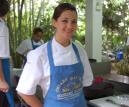
By Nicole Martin > Sophomore > Journalism & Sociology > Pennsylvania State University; Photo by Arsh Raziuddin > Sophomore > Graphic Design > UMBC
As they always say this time of year, “love is in the air.” And while it seems like everyone is breathing it in, I find myself begging the question: by what definition do we label a connection “love?”
New York City-based dating coach and psychotherapist Charley Wininger said it’s easy – particularly for a young adult – to fool oneself into thinking he or she is in love. If foolishness is the likely situation, how does one recognize if the feeling is mere infatuation?
College Magazine consulted the experts to unveil the answer.
Physicality: Know When It’s Lust
Though we all may want to believe in the love-at-first-sight and fairytale romances we see in movies, unfortunately – unless you’re really, really lucky – love doesn’t happen that way.
“Love takes time,” Wininger said. “I believe in lust at first sight. ‘Love’ at first sight is another name for infatuation.
“Lust is a strong attraction to something, mostly physical. Love can still be lustful but I think love is about an emotional attraction and being true to you,” said April Green of Slippery Rock University, who has been in a serious relationship for four years. “It’s not love when the biggest thing on your mind is the physical attraction and you don’t really care what the person has to say.”
There’s the magic code: lust, by definition, involves a physical desire or need for another person. According to Loveology University, lust triggers a flood of testosterone, which stems from physical attraction and sexual chemistry. Research at Maudsley Hospital in London found that lust produces a similar reaction in the brain as that of depending on narcotics — “Lust really is like a drug,” said Dr. John Marsden of the National Addiction Center. “It leaves you wanting more.”
So while sexual chemistry is an ingredient of a successful relationship, a genuine bond does not—and cannot – function on it alone.
Look For Signs
“Love is a deeper and a more mature feeling,” Wininger said. “A big sign [of love] is acting maturely in a relationship like keeping your word.”
Trust is a defining component of a loving relationship. If you feel you are able to depend on your partner without question, you’re heading the right direction. A loving significant other should offer you the assurance that they will always be there, while relationships stemmed from lust skip the step of developing trust and genuineness. Lack of reliability from your partner – which can lead to other problems like cheating and dishonesty – may be a warning sign that your relationship lacks love.
Another sign is whether you actually feel comfortable with your partner’s personality. That may sound obvious, but often the signs are present: do you wonder what your girlfriend does when she isn’t around you? Does your boyfriend exhbit social behaviors that you struggle to look past?
“Love depends on the chemistry you have with your partner’s personality and way of living,” said West Chester University student Jordan Paugh, who is in a 3-year-long committed relationship. Answering yes to any of those questions does not immediately imply you’re not in love, but it does suggest that you find a person’s external qualities more appealing than the internal ones, lust’s defining characteristic.
Too Young to Be in Love?
While love has no age, it does require a maturity level. It takes maturity to work through problems that may inevitably arise, even in the strongest of relationships. A partner who seems incapable of taking your relationship issues seriously possesses a trait that is destructive to relationships. It is the ability to communicate and compromise, Wininger described, that keeps people together.
“Young people often aren’t mature enough to work though problems … real love means being willing to work at it,” he said.
But, There is Hope
Being lustful for someone does not make your relationship any less important – what matters more is if you and your partner find happiness and contentment in your arrangement. Connections that begin with lust or infatuation have the potential, if you allow them, to mature into loving relationships.
Wininger recalled his own growth from a lust-at-first-sight experience: “I fell in lust with [my wife] Shelly, and it grew into love after three or four months. Now we’re happily married. Infatuation can absolutely grow to love; it did for me.”
Paugh added that one should not feel like he or she has to “give up” his or her true self for any relationship. He reminds young adults “to not change your own values … because your partner wants you to” and to maintain communication with your partner at all times to last.



















